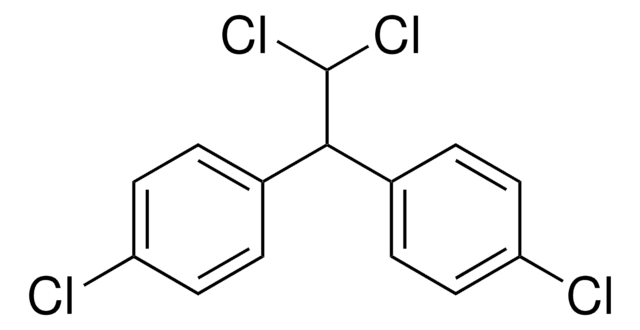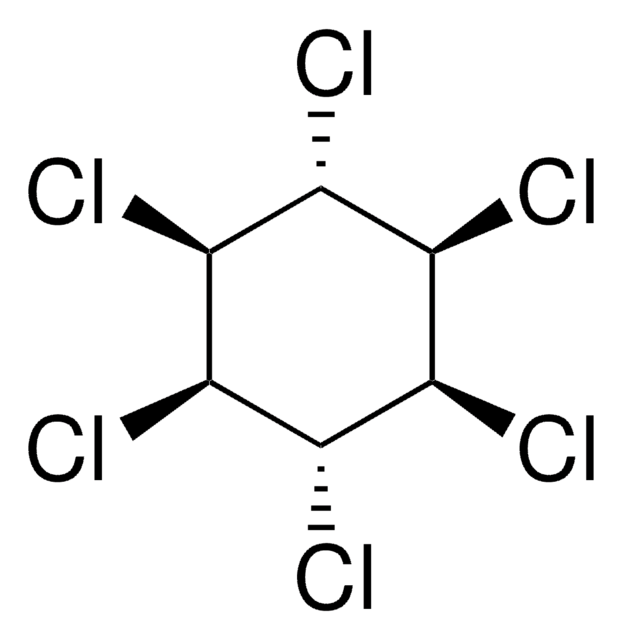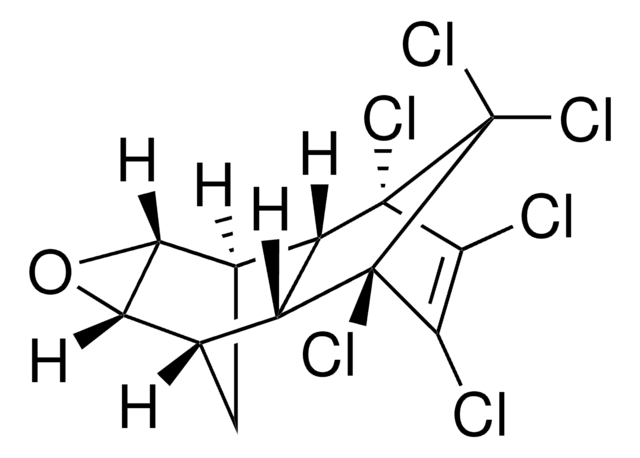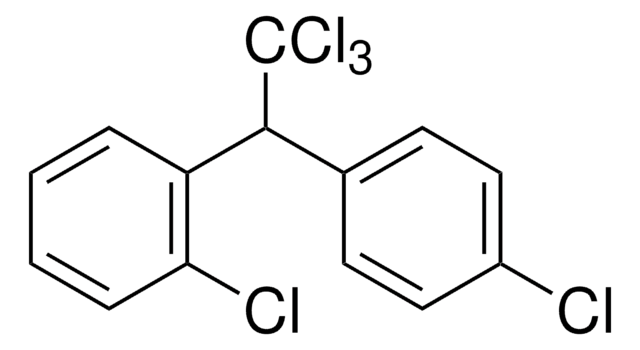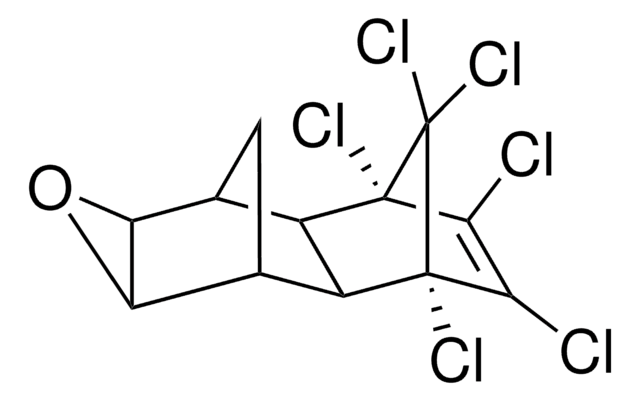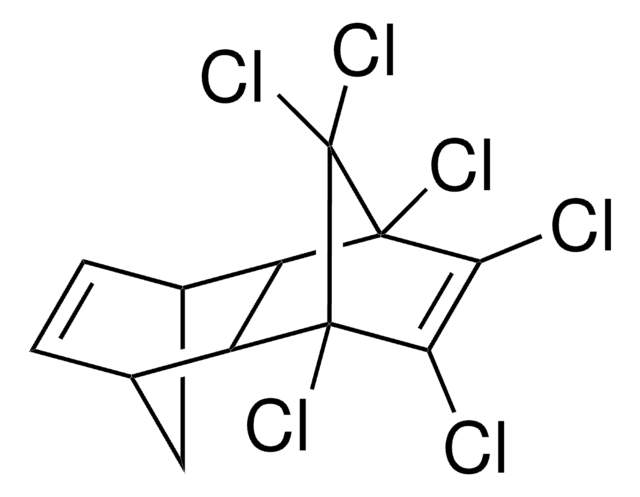31041
4,4′-DDT
PESTANAL®, analytical standard
Synonym(s):
1,1,1-Trichloro-2,2-bis(4-chlorophenyl)ethane, 1,1-Bis(4-chlorophenyl)-2,2,2-trichloroethane
About This Item
Recommended Products
grade
analytical standard
Quality Level
product line
PESTANAL®
shelf life
limited shelf life, expiry date on the label
technique(s)
HPLC: suitable
gas chromatography (GC): suitable
mp
107-110 °C (lit.)
application(s)
cleaning products
cosmetics
food and beverages
personal care
format
neat
SMILES string
Clc1ccc(cc1)C(c2ccc(Cl)cc2)C(Cl)(Cl)Cl
InChI
1S/C14H9Cl5/c15-11-5-1-9(2-6-11)13(14(17,18)19)10-3-7-12(16)8-4-10/h1-8,13H
InChI key
YVGGHNCTFXOJCH-UHFFFAOYSA-N
Looking for similar products? Visit Product Comparison Guide
General description
Application
- In water by solid-phase microextraction followed by gas chromatography (GC) coupled with an electron capture detector.
- In human biological samples by gas chromatography (GC) with mass spectrometry (MS) detector in tandem mode.
Refer to the product′s Certificate of Analysis for more information on a suitable instrument technique. Contact Technical Service for further support.
Legal Information
signalword
Danger
Hazard Classifications
Acute Tox. 3 Dermal - Acute Tox. 3 Oral - Aquatic Acute 1 - Aquatic Chronic 1 - Carc. 2 - STOT RE 1 Oral
Storage Class
6.1C - Combustible acute toxic Cat.3 / toxic compounds or compounds which causing chronic effects
wgk_germany
WGK 3
flash_point_f
Not applicable
flash_point_c
Not applicable
ppe
Eyeshields, Faceshields, Gloves, type P3 (EN 143) respirator cartridges
Choose from one of the most recent versions:
Already Own This Product?
Find documentation for the products that you have recently purchased in the Document Library.
Customers Also Viewed
Our team of scientists has experience in all areas of research including Life Science, Material Science, Chemical Synthesis, Chromatography, Analytical and many others.
Contact Technical Service

